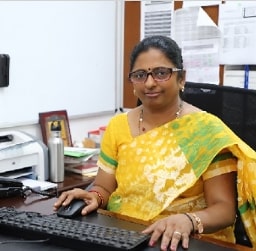Healthcare IT as One Of the Top of the Line Jobs
 The Indian Healthcare industry is growing at a tremendous tempo owing to the initiatives being adopted for strengthening coverage, services and increasing healthcare expenditure by public as well as private players in addition to the widespread adoption of technology. It is predicted that by 2020, the market will touch US$ 280 billion and its Healthcare Information Technology (HIT) counterpart will grow 1.5 times more than the current growth of nearly US$ 1 billion. The recent most flagship government initiative, Digital India through its E-health initiative is set to address information asymmetry and below par access at remote areas through technology and portals. The new National Health Policy 2017 advocates extensive deployment of digital tools for improving the efficiency and healthcare outcomes through establishment of National Digital Health Authority (NDHA).
The Indian Healthcare industry is growing at a tremendous tempo owing to the initiatives being adopted for strengthening coverage, services and increasing healthcare expenditure by public as well as private players in addition to the widespread adoption of technology. It is predicted that by 2020, the market will touch US$ 280 billion and its Healthcare Information Technology (HIT) counterpart will grow 1.5 times more than the current growth of nearly US$ 1 billion. The recent most flagship government initiative, Digital India through its E-health initiative is set to address information asymmetry and below par access at remote areas through technology and portals. The new National Health Policy 2017 advocates extensive deployment of digital tools for improving the efficiency and healthcare outcomes through establishment of National Digital Health Authority (NDHA).
The improvements in public healthcare spending, increased focus of the providers on better financial management, growth in consumer health awareness, their pursuance for quick response, quality care, nearness of the healthcare unit all in tandem with expansions in technology have resulted in taking the healthcare out of the confines of the hospitals towards a paradigm shift in usage of digital technologies. Some of the newer technological advancements are:
• Electronic health record
• Portal technology (Collaborative data exchange online)
• Sensors and wearable technology
• Telemedicine/ telehealth
• Mobile devices (mobility)/ Remote / real-time locating tools
• Cloud computing
• Wireless communication
All these have resulted in an explosive growth in areas like public-private partnerships, consultancies, development of novel medical devices, analytical tools, medical tourism and also triggered a concomitant opening of doors to fast growing job opportunities in HIT sector.
Work Environment
A career in HIT enables remarkable opportunities to bring in value, quality, reliability, efficiency, cost-effectiveness and better healthcare outcomes. Students and professionals with a dual passion for IT and medical, allied health sciences have a great career possibility in this field. The timing for such a career choice could not be better. Healthcare providers now confront a huge procedural shift from traditional methods of service provision, to interaction with digital records, online monitoring, workflow automation, telemedicine and mobile-based practices. This has ensured an increased dependency on HIT specialists within all types of medical and non-medical settings in all geographical areas of the country catering directly or indirectly related to healthcare sector - private practices, hospitals, nursing homes, laboratories, public health agencies, insurance providers, consultancies, and software companies. The working environment confronting an HIT professional is defined by the level to which the employer has adopted the technology. The job responsibilities includes a plethora of tasks from optimizing the new systems to providing training, documentation, maintenance, trouble shooting, to requirement gathering, designing for new system as well.
Education and Requisite Essential Skills
A career in healthcare information technology requires training in computer science, business management and domain knowledge related to hospital or public health. Anyone with an appropriate bachelor’s or master’s degree (BSc, BSc Nursing, BPharm etc) or with medical (MBBS, BDS) or computer degree (BTech) are eligible for entering the field.
In addition to good computer application and process understanding, a successful HIT specialist should possess the following skills: knowledge of healthcare delivery workflow, problem-solving and critical thinking, market research capabilities, strong verbal and written communication, attention to detail and to customer service, meeting the needs of the internal department as well as those of clinical and business customers, team work, ability to quickly learn and adapt as both healthcare and technology are dynamically changing fields. Specialized skill training in any one of the upcoming areas like big data analytics, system maintenance, user interface testing, cloud computing, mobile computing, social media marketing, mHealth, Telemedicine etc will further help to advance the career prospects. There are numerous opportunities for career advancement from technical to administrative roles. The HIT specialists may find themselves in various roles. To name a few-
• Healthcare IT Executive
• Health Informatician Technician
• Chief Medical Information Officer
• Healthcare Business Analyst
• Project Manager/Developer/Trainer
• EMR consultant/Implementation Manager
• Clinical information manager/ associate
• HIT research associates
• mHealth and telemedicine specialists
Fresher graduates may expect salary packages anywhere between three Lacs per annum to eight Lacs per annum. Work experience makes the professionals equipped with more knowledge of HIT and adaptable for advanced responsibilities culminating into quick career growth in terms of job and salary advancements. This requisites having the necessary perseverance to see through oneself in the job be it any role with hard work, open to learning and grit determination.
Future Ahead
Many healthcare service providers to name a few- Max, Fortis, Medanta, AIIMS and Shankara Netralaya have already implemented HIT fat different stages and many more are slowly joining the bandwagon. IT companies like Deloitte, Cerner, Alscripts, Wipro, Napier, TCS, Reliance, Akhil Systems and others through their products and services, are supporting them. In addition, public hospitals are also gearing towards digitalisation to meet greater efficiency. There will be no dearth for opportunities in this evergreen field in the upcoming years as India moves towards digital and affordable health care.

